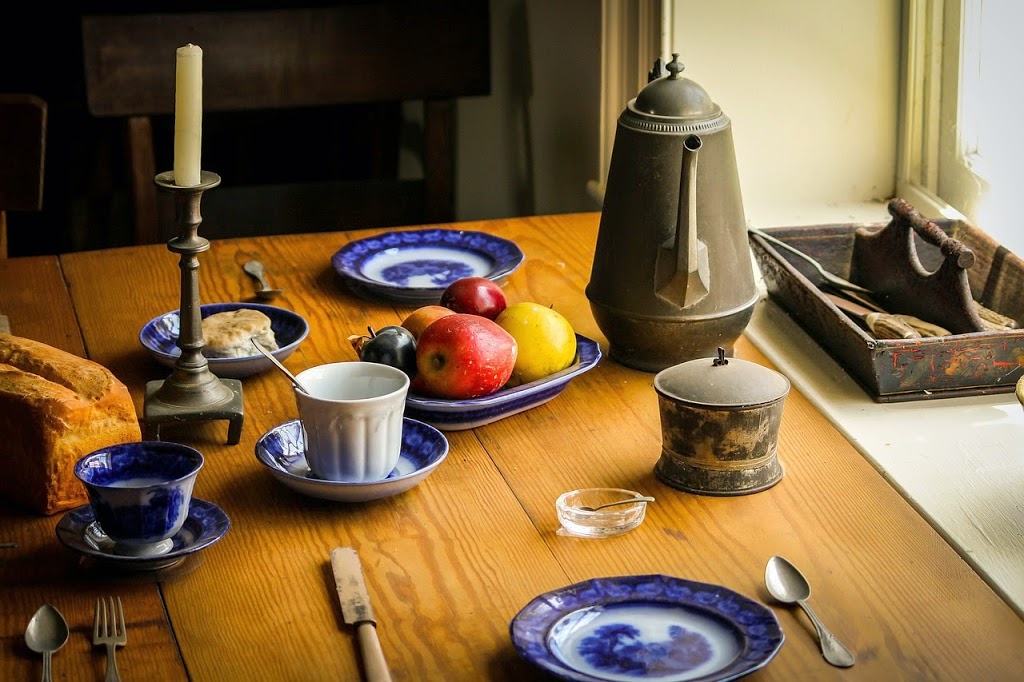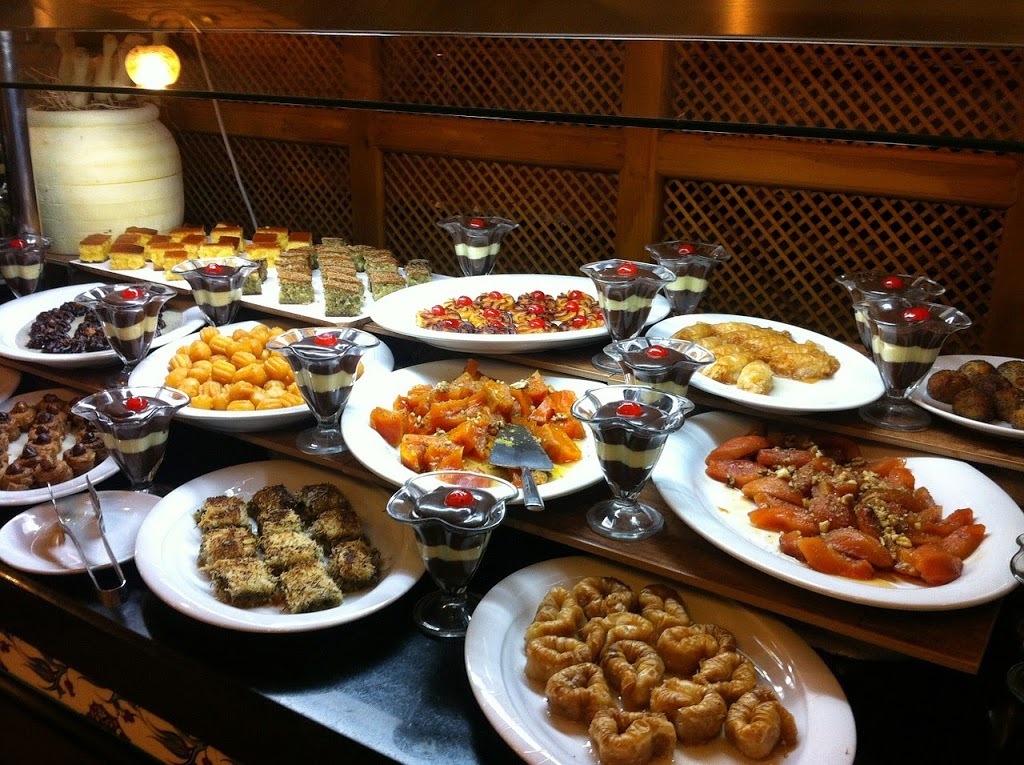With roots in Arabic and Farsi, the word ‘sofra’ shows up in languages throughout the Middle East and Caucasus. The root of the word is ‘sfr’ in Arabic, and directly referred to food given to travellers.
In Arabic and Farsi scripts, short vowels are not outright written in most cases. Looking for the word in Arabic or Farsi will lend many different spellings and interpretations: “Soffreh,” “Sofreh,” or “Sufreh” are common spellings when translating the word from Arabic or Persian script to the Latin alphabet.
Regardless of the roots, the word sofra in all three of the main languages where it is primarily used (Arabic, Farsi, and Turkish) directly translate into English as the word for tablecloth.
Once this direct meaning was very true, during the time when meals were partaken atop an oil cloth on the floor. Later, the Ottomans referred to sofra as the little tables that were used for eating. Large metal trays atop short legs, where diners would still sit on the floor to eat.
Nowadays, the Turkish sofra is at a modern table with all the trimmings.
It might seem like a cut and dry definition, but for anyone that lives in the region, we are aware of the larger, more untranslatable meaning. The meaning encompasses everything from the tablecloth to the feast.
Sofra refers to the food on the cloth, the company at the table, and sometimes the occasion for the meal. In Turkey, there are meals as diverse as a kahvalti sofrasi (breakfast meal) to a düğün sofrasi (wedding meal). In Iran there are many different religious sofras, including spiritual sofra ceremonies carried over from Zoroastrian times. The word has a long, deep meaning.
The word Sofra perfectly complements our project, with it’s diverse meanings and rituals. From a simple cloth on the floor with bread and cheese to a lavish table set during Ramadan, both have sofra rights. From the simple to the exotic, the basic to the beautiful, all have a place at the table or on the cloth. The stories in Sofra, the book will reflect how we were welcomed to take a seat at the table of Turkish culture, and what we tasted during the journey of our meal.
What did we eat? What do we expat women bring to the table? In our houses, our kahvalti sofrasi might have the usual Turkish breakfast but with a jug of maple syrup brought from back ‘home.’ Lively conversations over cups of tea or filtered Americanos. Dashes of things from here and there, our sofra both traditional and unique. Instead of redefining the word, we change the seasoning.



